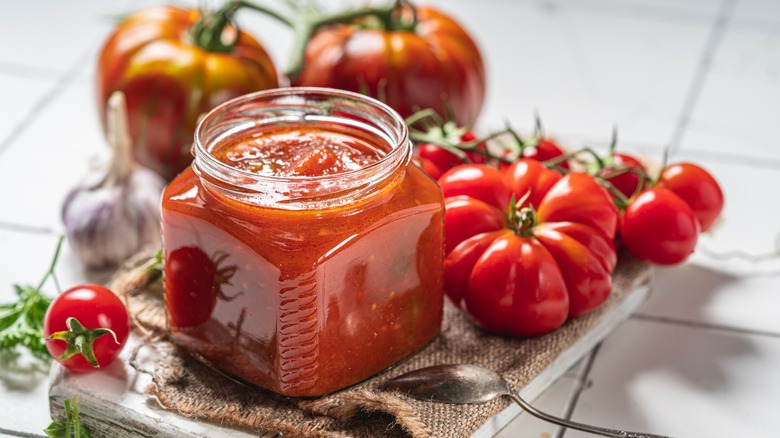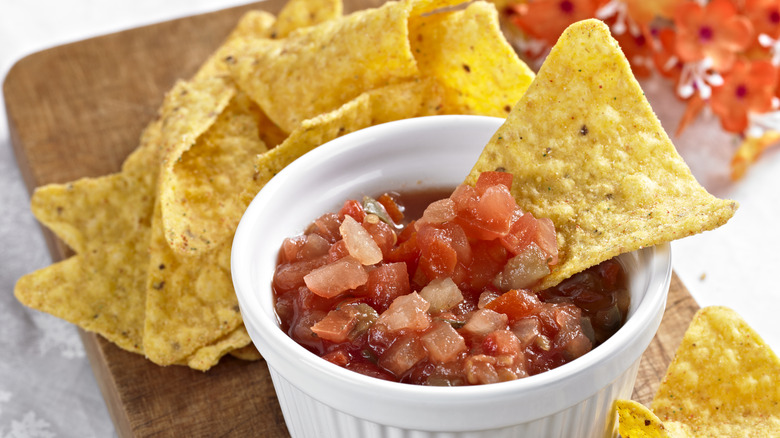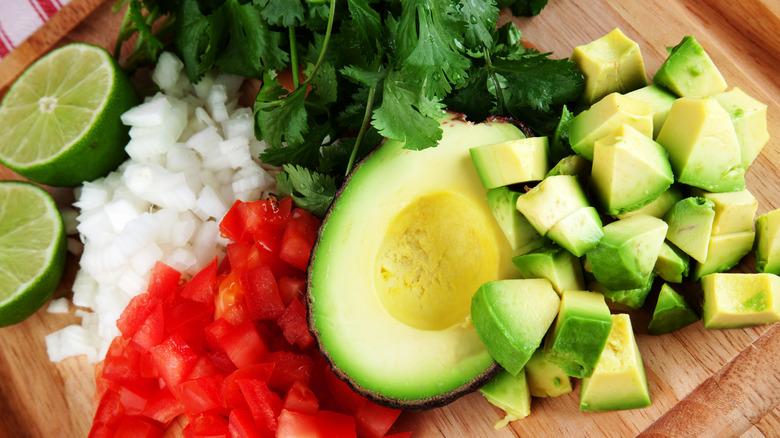How Long Does Home-Canned Salsa Last?
You should always be prepared for an impromptu taco night. Related to that, there's nothing worse than hitting the fridge, only to find that your salsa is past its sell-by date. After all, salsa begins to lose its quality after a few weeks in the fridge. Fortunately, if you're into canning, you can make a ready supply of salsa for whenever the occasion strikes. Yet nothing lasts forever, not even canned salsa, so here's exactly how long you can expect your home canned salsa to last.
According to the USDA, you can expect your salsa to be safe for over a year. Higher-acid canned goods typically are safe to consume for up to 18 months, which is slightly less than low-acid ones, which should be safe for two to five years. However, from a quality perspective, you may want to consider eating that canned salsa within a year of making it. That's because, as Elizabeth Andress of the National Center for Home Food Preservation explained, "The one issue with keeping foods too long is you will get quality deterioration, you can get real darkening of colors of many foods, [and] you might get some cloudiness that occurs as starches settle out of the foods" (via Healthy Canning).
How to preserve homemade salsa
It's extremely important when canning anything that you practice proper precautions to avoid any foodborne illnesses. It's also vital that you know there are two types of canning: one that uses a pressure canner and another that requires a water bath. According to the USDA, high-acid foods (with a pH of 4.6 or less) should be canned through the water bath method.
Salsa may seem like it's in a bit of a gray area. After all, it contains both low-acid veggies and high-acid fruits like tomatoes, all of which have been mixed together. If you're concerned about which canning method to use for salsa, then consider the amount and kind of ingredients in your salsa. Typically, despite the mixture, salsa is considered to be high-acid.
However, it's difficult to say all of this with certainty since salsa is a highly customizable recipe. For this reason, the National Center for Home Food Preservation says that you may want to consider using a pressure canner for your salsa. This helps minimize the risk of botulism if there's not enough acid in the mix to kill the potentially fatal toxin. When it comes to your health, it's always better to practice an abundance of caution.
Best ingredients for homemade salsa
When making homemade salsa, take the time to think carefully about your ingredients, especially if you plan to can it. According to the University of Connecticut, it's important to pick the right tomatoes for your salsa. If your tomatoes are too ripe, then they may not be acidic enough to can via the water-bath method. To up the acidity, you could add white vinegar into your salsa recipe. Not only will it give the mixture an added kick, but it will also raise the mixtures acidity as well.
As far as other ingredients are concerned, feel free to add your favorites in the mix like onions, jalapeños, and mangos for sweet heat. Just remember to think about how they interact with each other and how they might affect the pH of your final product. For instance, consider how many low-acid veggies you're adding to the mix, such as peppers, onions, and spices. If there's any doubt, consider testing your salsa with a pH strip, which can give you a more clear answer.
For added safety, consider cooking your salsa before canning, as it will be easier for these various ingredients to blend and can help combat potential pathogens.


